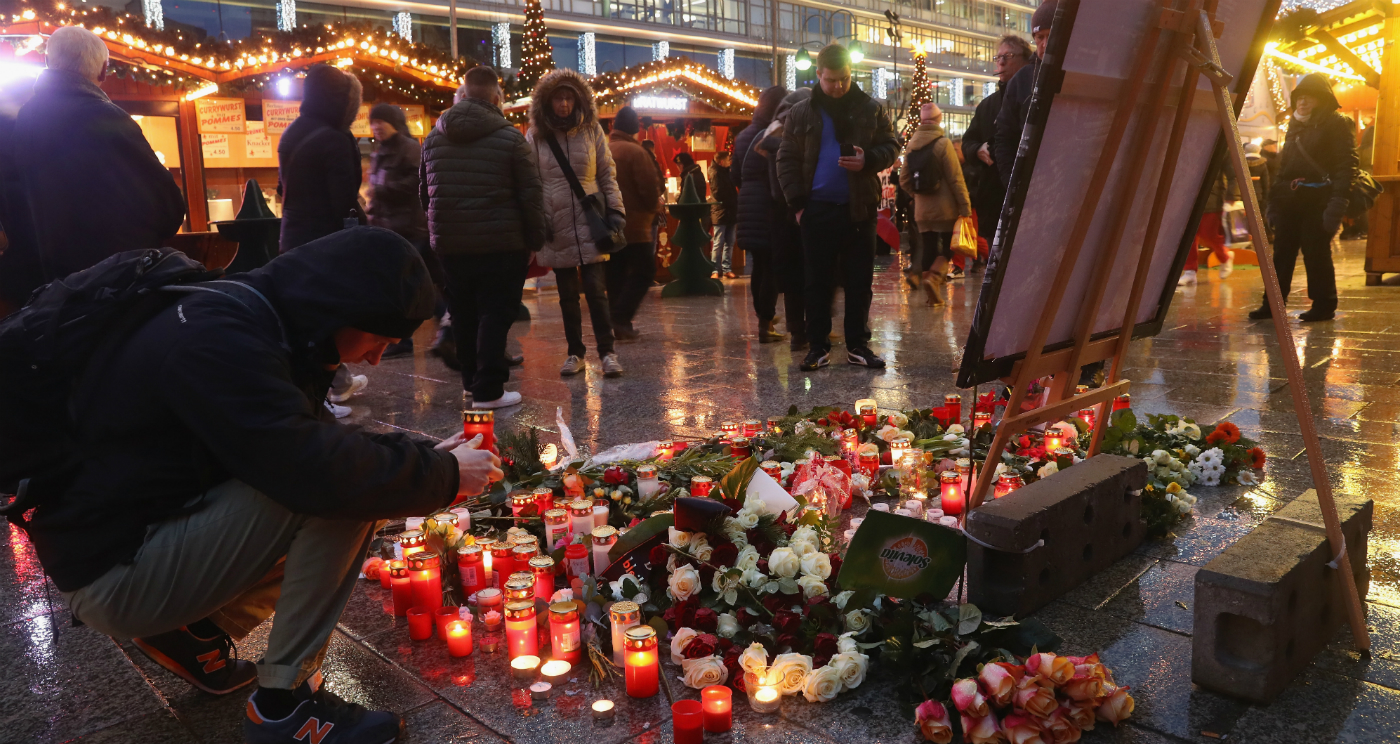German security services switch tactics to identify terrorists
Half of the 720 terrorist suspects analysed using new method no longer viewed as threats

A free daily email with the biggest news stories of the day – and the best features from TheWeek.com
You are now subscribed
Your newsletter sign-up was successful
Germany is testing a sophisticated new analysis system to identify terrorist suspects following criticism of security services in the wake of the 2016 truck attack on a Berlin Christmas market that left 12 people dead.
The Tunisian national behind the atrocity, Anis Amri, was known to multiple intelligence agencies for his suspected ties to Islamic extremists. According to German media, authorities knew for more than a year in advance that he presented a “clear danger”.
Germany’s 16 state police services and the Federal Criminal Police Office have since been testing a new tool called RADAR-iTE - a set of 73 standardised questions developed by police and Swiss scientists to analyse data about each suspect in order to identify Islamist “endangerers”, Deutsche Welle reports.
The Week
Escape your echo chamber. Get the facts behind the news, plus analysis from multiple perspectives.

Sign up for The Week's Free Newsletters
From our morning news briefing to a weekly Good News Newsletter, get the best of The Week delivered directly to your inbox.
From our morning news briefing to a weekly Good News Newsletter, get the best of The Week delivered directly to your inbox.
Using the new method of analysis - which looks at characteristics including the suspect’s job security and propensity for violence - German security services have concluded that about half of the 720 people in the country previously classified as “dangerous Islamists” do not actually pose a terror threat.
The tool bases analysis on the suspect’s “observable behaviour, rather than their ideology or religious habits, using as much information as can be gleaned about a suspect’s life”, says the German newspaper.
“Ideology is not the only important thing. There are dangerous people in this area for whom ideology only plays a small role,” said Jerome Endrass, of Constance University, who helped develop the system. Endrass said that for security reasons, he was unable to disclose the specific questions used.
“I wouldn’t say that this system is better than other systems,” Endrass added. “There is little comparative research. Radar-ITE is the only instrument available in the German-speaking world up to now that has followed these strict scientific criteria.”
A free daily email with the biggest news stories of the day – and the best features from TheWeek.com
-
 5 calamitous cartoons about the Washington Post layoffs
5 calamitous cartoons about the Washington Post layoffsCartoons Artists take on a new chapter in journalism, democracy in darkness, and more
-
 Political cartoons for February 14
Political cartoons for February 14Cartoons Saturday's political cartoons include a Valentine's grift, Hillary on the hook, and more
-
 Tourangelle-style pork with prunes recipe
Tourangelle-style pork with prunes recipeThe Week Recommends This traditional, rustic dish is a French classic
-
 Epstein files topple law CEO, roil UK government
Epstein files topple law CEO, roil UK governmentSpeed Read Peter Mandelson, Britain’s former ambassador to the US, is caught up in the scandal
-
 Iran and US prepare to meet after skirmishes
Iran and US prepare to meet after skirmishesSpeed Read The incident comes amid heightened tensions in the Middle East
-
 Israel retrieves final hostage’s body from Gaza
Israel retrieves final hostage’s body from GazaSpeed Read The 24-year-old police officer was killed during the initial Hamas attack
-
 China’s Xi targets top general in growing purge
China’s Xi targets top general in growing purgeSpeed Read Zhang Youxia is being investigated over ‘grave violations’ of the law
-
 Panama and Canada are negotiating over a crucial copper mine
Panama and Canada are negotiating over a crucial copper mineIn the Spotlight Panama is set to make a final decision on the mine this summer
-
 Why Greenland’s natural resources are nearly impossible to mine
Why Greenland’s natural resources are nearly impossible to mineThe Explainer The country’s natural landscape makes the task extremely difficult
-
 Iran cuts internet as protests escalate
Iran cuts internet as protests escalateSpeed Reada Government buildings across the country have been set on fire
-
 US nabs ‘shadow’ tanker claimed by Russia
US nabs ‘shadow’ tanker claimed by RussiaSpeed Read The ship was one of two vessels seized by the US military